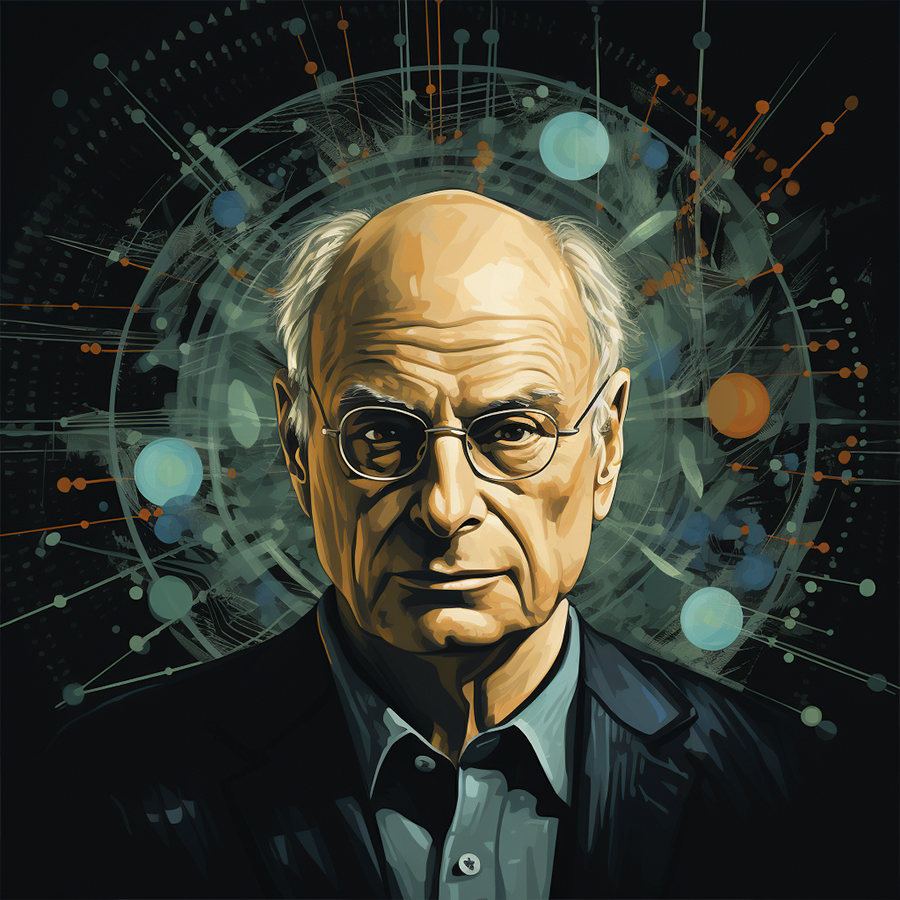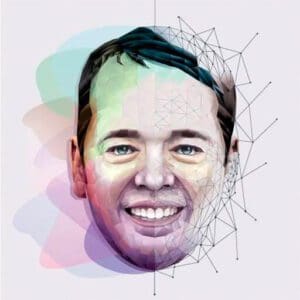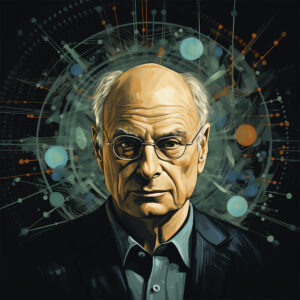Daniel Kahneman, the Nobel Prize-winning psychologist and economist, is a pioneer in the field of behavioral economics. His groundbreaking work has transformed our understanding of human decision-making and has had a significant impact on various fields, including economics and psychology.
Kahneman’s theories have challenged traditional economic models and shed light on the complexities of human behavior. Kahneman’s collaboration with fellow psychologist Amos Tversky was a turning point in his career. Together, they challenged the concept of rationality in decision-making and introduced the idea of “cognitive biases” – the inherent errors in human judgment. Their work, which began in the 1970s, revolutionized the field of decision-making and continues to influence research and policies today.
Table of contents
- Key Takeaways
- Introduction
- Daniel Kahneman: A Pioneer in Behavioral Economics
- The Collaborative Work of Kahneman and Tversky
- The Impact of Kahneman’s Theories on Economics and Psychology
- Kahneman’s Prospect Theory and Its Influence on Economic Models
- The Practical Applications of Kahneman’s Work
- The Criticisms and Controversies Surrounding Kahneman’s Work
- Kahneman’s Continued Impact on the Field of Behavioral Economics
- Frequently Asked Questions
- What are Daniel Kahneman’s insights on behavioral economics?
- How does Kahneman’s work relate to the capitalist system?
- What is the day reconstruction method and how does it affect decision making?
- How does Kahneman’s work impact negotiation and decision making in general?
- How does Kahneman’s work relate to the stock market and financial events?
- Is intuition always unreliable, according to Kahneman’s research?
Key Takeaways
- Kahneman’s collaboration with Tversky revolutionized decision-making by challenging traditional economic theories and introducing the role of loss aversion.
- His work has practical applications in informing public policy and recognizing the importance of understanding human behavior in economic decisions.
- Despite criticisms and controversies, Kahneman’s impact on the field of behavioral economics continues to shape our understanding of human decision-making and its role in economic science.
Introduction
Kahneman’s work has significantly impacted economics, challenging the traditional view of human behavior as rational, self-interested, and utility-maximizing. His theories have been instrumental in shaping the field of behavioral economics, which combines insights from psychology and economics to study how humans make economic decisions. This multidisciplinary approach has expanded our understanding of economic behavior and has implications for public policy and business strategies.
In recognition of their groundbreaking work, Kahneman and Tversky received numerous awards, including the Nobel Prize in Economic Sciences in 2002. Their most influential work, “Judgment under Uncertainty,” was published in the American Economic Review and has been cited over 16,000 times. Kahneman has also received the American Psychological Association’s highest honor, the Award for Distinguished Scientific Contributions.
Kahneman’s prospect theory, which explains how humans make decisions under uncertainty, has challenged traditional economic models and has been validated by numerous studies. This theory highlights the role of loss aversion in decision-making, where individuals are more averse to losses than gains and tend to make risk-averse choices. This has significant implications for economic behavior and has been incorporated into economic models and policies.
The practical applications of Kahneman’s work are far-reaching, particularly in the field of public policy. His insights on human behavior and decision-making have informed the concept of “libertarian paternalism,” where policymakers nudge individuals towards making better decisions without restricting their freedom of choice. This approach has been successful in promoting healthy behaviors, increasing retirement savings, and reducing energy consumption.
However, Kahneman’s theories have received some criticism and controversy. Some argue that his work overemphasizes the irrationality of human decision-making and ignores the role of rationality. Others suggest that his findings are not universal and may vary across cultures and contexts.
Daniel Kahneman: A Pioneer in Behavioral Economics
Daniel Kahneman, a Nobel laureate, is widely recognized for his groundbreaking contributions to the field of behavioral economics. Through his research, Kahneman has revolutionized our understanding of decision-making processes. By examining human biases and heuristics, he has challenged traditional economic theories that assume people always make rational choices. Instead, he has revealed the influence of cognitive biases and irrational behavior on our decision-making.
Kahneman’s work has had a profound impact on various disciplines, including finance, marketing, and public policy. His ongoing research continues to shape our understanding of how individuals and societies make choices, solidifying his position as a true pioneer in the field of behavioral economics.
The Collaborative Work of Kahneman and Tversky
The partnership of Daniel Kahneman and Amos Tversky has had a profound impact on the field of decision-making. In this section, we will delve into their collaborative work and how it has revolutionized our understanding of decision-making processes. Through their groundbreaking research and insights, Kahneman and Tversky have challenged traditional economic theories and provided a new perspective on human behavior. Let’s explore how their work has transformed the way we approach decision-making.
How Their Work Revolutionized the Field of Decision-Making
Daniel Kahneman and Amos Tversky were pioneers in the field of decision-making, revolutionizing traditional economic theory with their groundbreaking work in behavioral economics. Through their contributions, they reshaped our understanding of human behavior and decision-making processes. Here are the key ways in which their work transformed the field:
- Challenging traditional economic theory: Kahneman and Tversky’s research challenged the assumption of rational decision-making, demonstrating that human choices are often influenced by cognitive biases and heuristics.
- Prospect theory: They introduced prospect theory, which explains how individuals make decisions under uncertainty and how loss aversion can impact decision-making.
- Practical applications: Their work has practical applications in various fields, including public policy, finance, and marketing, where understanding behavioral economics can lead to better decision-making.
- Influence on other researchers: Their research has had a profound impact on other researchers and economists, inspiring further studies in behavioral economics and shaping the development of the field.
- The future of behavioral economics: Kahneman and Tversky’s work laid the foundation for the continued growth of behavioral economics, which continues to play a significant role in advancing economic science.
Kahneman’s theories on decision-making are a reminder that humans are a messy mix of logic and emotion, making for interesting (and sometimes unpredictable) economic and psychological outcomes.
The Impact of Kahneman’s Theories on Economics and Psychology
In the world of economics and psychology, the groundbreaking research of Daniel Kahneman and Amos Tversky has left a lasting impact. Their theories on behavioral economics have challenged traditional beliefs and transformed our understanding of decision-making. As we delve into the impact of their work, we will first examine the recognition and awards received by Kahneman and Tversky, highlighting the significance of their contributions to these fields.
The Recognition and Awards Received by Kahneman and Tversky
Kahneman and Tversky’s groundbreaking work in behavioral economics earned them recognition and numerous prestigious awards. Here are some notable accolades they received:
- Nobel Prize in Economic Sciences (2002): For their pioneering work in behavioral economics, Daniel Kahneman was awarded the Nobel Prize, challenging traditional economic theories.
- Grawemeyer Award in Psychology (2003): For their exceptional contributions to the field of psychology, Kahneman and Tversky were honored with this esteemed award.
- John von Neumann Theory Prize (1985): In recognition of their profound impact on the field of decision-making and game theory, Kahneman and Tversky were bestowed with this prestigious award.
Forget traditional economic theory, Kahneman’s Prospect Theory is the real game-changer in decision-making.
Kahneman’s Prospect Theory and Its Influence on Economic Models
In the world of economics, traditional models often assume that individuals are rational and always make decisions that maximize their own self-interest. However, Nobel Prize-winning psychologist Daniel Kahneman challenged this notion with his groundbreaking Prospect Theory. In this section, we will explore how Prospect Theory differs from traditional economic theory and the significant role of loss aversion in decision-making. By understanding these concepts, we can see how behavioral economics can transform our understanding of decision-making processes.
How Prospect Theory Challenges Traditional Economic Theory
Prospect Theory challenges traditional economic theory by incorporating two key components: loss aversion and reference dependence. Here’s a breakdown of how Prospect Theory challenges traditional economic theory:
- Loss aversion: Traditional economic theory assumes that individuals make rational decisions by maximizing utility. However, Prospect Theory suggests that individuals are more sensitive to losses than gains. This means that people often make decisions to avoid losses rather than seeking gains.
- Reference dependence: Traditional economic theory assumes that individuals make decisions based on absolute outcomes. Prospect Theory proposes that individuals evaluate outcomes relative to a reference point, such as their current situation or past experiences. This reference dependence can lead to irrational decision-making.
Fact: The insights of Prospect Theory have significantly impacted various fields, including finance, marketing, and public policy, by providing a more realistic understanding of human decision-making. When it comes to decision-making, our fear of loss often trumps our potential for gain – thanks to Kahneman’s insights.
The Role of Loss Aversion in Decision-Making
When making decisions, individuals tend to be more sensitive to potential losses rather than gains. This psychological phenomenon, known as loss aversion, plays a significant role in decision-making. Research conducted by Daniel Kahneman and Amos Tversky revealed that people are more likely to take risks in order to avoid losses, compared to seeking equivalent gains.
Understanding the impact of loss aversion can assist individuals in making better decisions by identifying and addressing biases. A helpful tip is to consider the potential losses associated with a decision and assess whether they outweigh the potential gains. By doing so, individuals can make more informed choices and avoid being overly influenced by the fear of losses.
Forget logic, just use Kahneman’s insights for better decision-making in real life!
The Practical Applications of Kahneman’s Work
Daniel Kahneman’s groundbreaking work in behavioral economics has revolutionized our understanding of human decision-making. In this section, we will explore the practical applications of his research and how it can be used to inform public policy. We will also discuss the significance of understanding human behavior in economic decisions and how Kahneman’s insights can be applied in various contexts to improve our decision-making processes. Let’s delve into the practical side of Kahneman’s work and discover its potential to transform the way we make choices.
How Behavioral Economics Can Inform Public Policy
Behavioral economics offers valuable insights that can inform decision-making processes in public policy.
- Evaluate policy outcomes: Understand how individuals’ biases and cognitive limitations may impact the effectiveness of policies.
- Nudge theory: Utilize behavioral insights to design policies that gently guide individuals towards making better choices.
- Consider framing effects: Acknowledge how the presentation of information can influence public perception and decision-making.
- Incorporate behavioral experiments: Conduct experiments to test the impact of policy interventions and make evidence-based adjustments.
- Account for social norms: Take into consideration how societal norms and peer influence can shape individual behavior when designing policies.
The Importance of Understanding Human Behavior in Economic Decisions
Understanding psychological factors in decision-making is key. Economists can thus develop more effective strategies. They focus on human behavior for realistic models. This approach explains irrational choices and biases. Additionally, it highlights social and cultural influences.
For instance, behavioral economists found a spending pattern. People spend more when happy, boosting consumer spending. This insight aids policymakers and businesses. They design strategies considering human behavior. Consequently, outcomes are more successful.
The Criticisms and Controversies Surrounding Kahneman’s Work
Daniel Kahneman’s work in behavioral economics has indeed revolutionized decision-making. Additionally, it sparked debates and controversies. In this section, we dive into criticisms of Kahneman’s theories. Furthermore, these theories challenge traditional beliefs about rationality. We also explore cultural influences on behavior. Moreover, this exploration highlights contentions in behavioral economics.
The Debate Over Rationality and Irrationality in Decision-Making
Behavioral economics deeply explores rationality and irrationality. Daniel Kahneman, a renowned scholar, challenges traditional economic theories. These theories assume rational decision-making. Kahneman reveals cognitive biases and heuristics. People often rely on these biases. This ongoing debate questions decision-making logic. Do emotions, biases, and heuristics influence decisions? Recognizing irrational tendencies deepens our understanding of human behavior. This understanding impacts economic models and public policy. It emphasizes a comprehensive decision-making approach. This approach incorporates rational and irrational factors.
Even in the world of economics, it’s true what they say: it’s all relative.
The Influence of Culture and Context on Human Behavior
Culture and context play a significant role in shaping human behavior and influencing decision-making processes. Research conducted by Daniel Kahneman and others in the field of behavioral economics has shed light on how cultural backgrounds, societal norms, and environmental factors impact our choices. For instance, cultural values can shape our tendencies towards risk-taking, while situational cues can prime certain behaviors. It is essential to understand these influences when designing policies and interventions. By acknowledging the impact of culture and context on human behavior, we can gain a deeper understanding of decision-making processes and enhance our ability to predict and influence behavior in various situations.
With his groundbreaking theories and continued influence, Kahneman is like the Beyoncé of behavioral economics.
Kahneman’s Continued Impact on the Field of Behavioral Economics
niel Kahneman revolutionized human decision-making studies. His research profoundly impacted behavioral economics. Additionally, it influenced related fields significantly. In this section, we explore his work’s extensive influence. We focus on its impact on researchers and economists. Moreover, Kahneman’s work reshaped our decision-making understanding. Furthermore, we will examine behavioral economics’ potential future. We also consider its role in economic science broadly.
The Influence of His Work on Other Researchers and Economists
Daniel Kahneman’s work greatly influenced behavioral economics. Additionally, his theories and methods provided new perspectives. Specifically, they shed light on human decision-making. Consequently, economists changed their study approaches. Furthermore, Kahneman’s insights expanded our behavioral understanding. As a result, more intricate economic models emerged. Moreover, these models led to comprehensive economic science insights. Ultimately, Kahneman’s impact continues to shape this field.
The Future of Behavioral Economics and Its Role in Economic Science
The future of behavioral economics is bright, as it continues to shape the field of economic science. This emerging discipline explores the impact of psychological factors on economic decision-making, challenging traditional economic theories. By incorporating insights from cognitive psychology, behavioral economics offers a more realistic understanding of human behavior. Recognizing and understanding human biases and irrationalities can inform public policy, leading to more effective interventions. Despite criticisms and debates surrounding rationality, cultural influences, and context, behavioral economics has had a significant impact on researchers and economists. Its role in economic science will only continue to grow, providing valuable insights into decision-making processes.
An example of the practical application of behavioral economics is a government’s implementation of a tax compliance intervention. By simplifying the tax filing process and utilizing behavioral cues, such as highlighting social norms, they saw a significant increase in tax revenues. This real-world application demonstrates the practical value of behavioral economics in shaping economic behavior and outcomes.
Frequently Asked Questions
What are Daniel Kahneman’s insights on behavioral economics?
Daniel Kahneman, a Nobel laureate in Economics, has spent decades researching human decision making and its impact on economics and investing. He argues that humans have two primary systems of thinking: system one, which is fast and driven by emotions, and system two, which is slow and analytical. His groundbreaking book, “Thinking, Fast and Slow,” delves into the perils of intuition and the importance of careful decision making in a constantly changing environment.
How does Kahneman’s work relate to the capitalist system?
Daniel Kahneman believes that optimism is the engine of capitalism, but overconfident optimists can also be a curse. He argues that the finance sector, in particular, is susceptible to the perils of intuition and biased decision making. He encourages individuals and organizations to be aware of their biases and to use objective methods for decision making in order to reduce risks and achieve better outcomes.
What is the day reconstruction method and how does it affect decision making?
The day reconstruction method is a research technique developed by Daniel Kahneman and his team that involves asking individuals to recall their activities and emotions throughout a particular day. This method reveals the impact of small environmental factors, like room temperature or a wet umbrella, on decision making. It highlights the importance of reducing tension and creating a comfortable environment for better decision making.
How does Kahneman’s work impact negotiation and decision making in general?
Daniel Kahneman’s research has implications for negotiations and decision making in all aspects of life. He advises individuals to slow down, delay intuition, and break problems into smaller parts in order to make more informed decisions. He also encourages the use of objective methods, such as algorithms, to reduce noise and human biases in decision making processes.
How does Kahneman’s work relate to the stock market and financial events?
Daniel Kahneman’s research has revealed that even in testable domains with discernible causal relationships, noise can distort results. For example, a study of underwriters at an insurance company showed that noise affected their decision making. This highlights the importance of reducing noise in decision making processes, especially in the fast-paced and unpredictable world of the stock market and financial events.
Is intuition always unreliable, according to Kahneman’s research?
No, intuition can be reliable in certain situations, such as driving and interacting with loved ones. However, it is important to note that the reliability of fast thinking depends on predictability, practice, and feedback. Kahneman advises against relying solely on intuition, especially in professional and financial decision making, and instead encourages individuals to think slow and use learnable rules for better outcomes.
Last Updated on November 14, 2023 by Benjamin Teal







